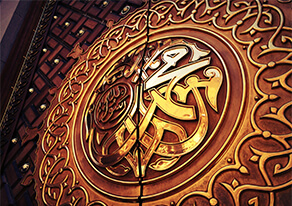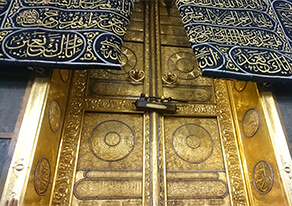There are basically three kinds of rituals performed in Hajj - Fardh, Wajib and Sunnah. Fardh and Wajibs of Hajj, also considered the pillars of Hajj are the obligatory acts that pilgrims must perform on their Hajj pilgrimage. However, the most recommended method of performing these Hajj rituals is how Prophet Muhammad (pbuh) performed these duties by undertaking all three categories of rituals. A pilgrim is advised to follow the footsteps of the Prophet (pbuh) when he/she embarks on this spiritual journey of Hajj. Although, non performance of Sunnah rituals does not nullify or invalidate the Hajj but their performance holds great rewards. There is no compensation required for neglecting them.
It is important to take complete bath before entering the state of Ihram which also include nail clipping, shaving of armpits and pubic hair, trimming of moustache etc. Doing Ghusul before assuming Ihram comes under the sunnah acts of Hajj.
It is sunnah to pronounce talbiyah and its omissions doesn’t bear any consequences but a pilgrim misses a great virtue by neglecting it. There are a few instances in the Hadith where the Prophet (pbuh) emphasized on the importance of uttering talbiyah. When asked a question regarding the best kind of Hajj with the greatest rewards, he said, “One in which voices are raised when saying talbiyah and a sacrifice is offered."
Tawaf-ul-Qudum i.e. the tawaf performed upon entering Masjid-ul-Haram, is the sunnah that is recommended to any pilgrim who visits Kaabah with the intention of Hajj or Umrah or any other business unless its makruh (unfavorable) time. The procedure of tawaf-ul-Qudum is same as that of the tawaf of Umrah.
After arriving at Mina on the afternoon of Tarwiyah on 8th Dhul Hijjah, a pilgrim is required to spend the rest of the day and the night in Mina. On 9th Dhul Hijjah, it is sunnah to leave Mina after offering fajr salah and set out for Arafat.
11th, 12th & 13th Dhul Hijjah are the days of Tashriq which are to be spent by a pilgrim in Makkah. After returning to Mina on the third day of Hajj, it is highly recommended to stay at Mina until the stoning at the Jamarat on the last day of tashriq. You will be following the footsteps of Prophet Muhammad (pbuh) who did not leave Mina until the last day of Hajj for the Tawaf-ul-Ifadah. No compensation is required for not performing this Sunnah.
After spending the day at Arafat and doing zikr and ibadah, a pilgrim moves to Muzdalifah for the overnight stay. The pilgrims also collect pebbles from Muzdalifah for next day of stoning at the Jamarat. These acts also come under the sunnah acts in Hajj.


